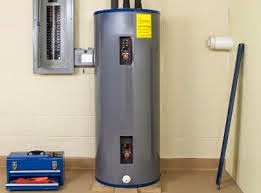With summer rolling on and another British winter just around the corner, boilers are going to have to take the strain. There is nothing worse than having to put up with a broken boiler in the winter. What you can do is make sure you have plumbing services in Glasgow at your disposal to make sure you are ready for anything.
In the meantime, there are a number of checks you can carry out to make sure you do not have to spend the time and the effort calling in a team of professional boiler installers.
In the meantime, there are a number of checks you can carry out to make sure you do not have to spend the time and the effort calling in a team of professional boiler installers.
Check the Heating on a Regular Basis
If you always keep your boiler on zero during low temperatures, this could cause a lot of damage to the boiler. It makes it harder to warm up because it has to do more to bring the cold pipes to the right temperature. You should check your heating regularly to make sure it can still warm up and down again.
Doing this will decrease the chances of it freezing up and breaking down. Ideally, it should always be kept at a low temperature when you are in the house.
Is the Boiler On?
It sounds incredibly patronising to ask this question, but the fact is it is more common than you think. If it is off or the gas/electricity supply has stopped working, the boiler will not work because you have not given it the chance to. Look to see if your energy supply is up and running. If it is, now check the pilot light. The pilot light should be on, assuming you have a pilot light in the first place.
In the event the pilot light has gone off, reset the boiler manually. You can do this without breaching your insurance policy or calling out an engineer.
Check the Boiler Instructions
Always check your boiler’s instructions before doing anything to it. You want to make sure that you have not inadvertently done something wrong. Furthermore, if you are carrying out any simple manual repairs by yourself this manual can help you understand what you should and should not do. The instructions given will not invalidate your insurance policy.
The Pressure Levels
Combi boilers often fall victim to low pressure levels during the winter months. This can stop them from working. If the boiler has stopped, check the pressure dial and the pipes for any signs of a leak. If there are no leaks, you can increase the pressure in the system by turning the valve handle.
Before you do this, always switch the boiler off and read the manual first. Increasing the pressure in a closed system like this can lead to explosions. This is why we often recommend sending for the plumbers when carrying out these repairs.
Overall, a problem with your boiler does not have to mean a big repair bill. Many issues can be solved by carrying out the four simple checks listed above. The important thing is to not panic. Most problems can be resolved in the matter of an hour.









